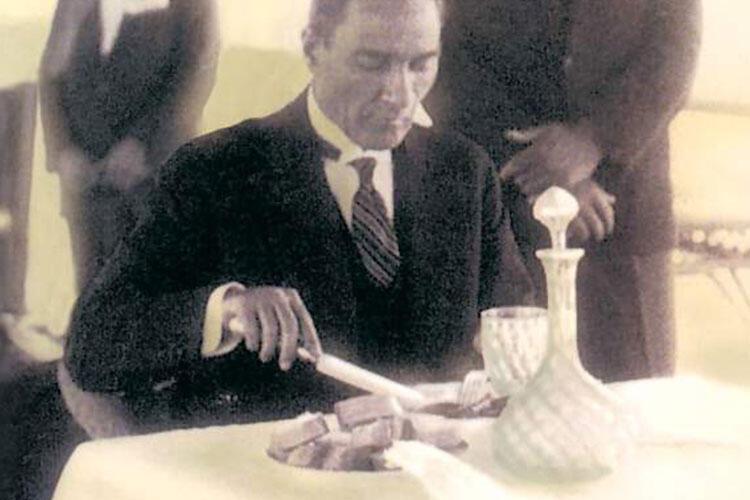
The latest book by a prominent Turkish historian and author revealing details about the daily life routine of Mustafa Kemal Atatürk, the founder of the Turkish Republic, says that he used to wake up late and that his favorite food was okra.
“Records show that he loved okra a lot. Officials close to him perpetually bought okra,” Murat Bardakçı said in an interview about his book, “Atatürk’ün Mutfağı” (Atatürk’s Kitchen), which was released on Jan. 19.
Historians indicated for years that Ataürk’s favorite meal was dried beans. “His love for dried beans, I guess, is a little exaggerated,” he insisted.
The book, a first of its kind, tells about Atatürk’s daily life routines, cuisine preferences and menus served at ceremonies in the Çankaya Pavilion between 1931 and his death in 1938.
“Doctors told me that okra is good for the liver,” he said while discussing what could be the reason for his okra-love.
The historian alleged that Atatürk was even once poisoned by canned okra.
As a state tradition since the birth of the republic in 1923, Bardakçı highlighted, everything a president does is recorded. “That’s why officers in Çankaya Pavillion used to note the time he slept and woke up,” he said. “Usually he was working during the nights, sleeping during daytime and waking up late. He just woke up early when there was a state event or a welcoming ceremony.”
Another note from the book is about Atatürk’s paying all the kitchen expenses from his pocket. “Among the 12 Turkish presidents, he was the one getting the highest salary. He paid all the expenses himself, not from the state.”
People stormed Bardakçı for his naming the pavilion a “bachelor pad.” When asked about this comment, he said, “I am talking about the first Çankaya Pavillion, which is a museum now. It was a small country cottage where he hosted people, and he was a bachelor while he was living there,” Bardakçı said without taking a step back.
Atatürk used to meet foreign diplomats in the pavilion. When asked if there was pork on the menu, Bardakçı immediately replied, “No.”
“His mother was a true Islam believer. He was raised in such an atmosphere. These people do not eat pork, due to their beliefs,” he added.